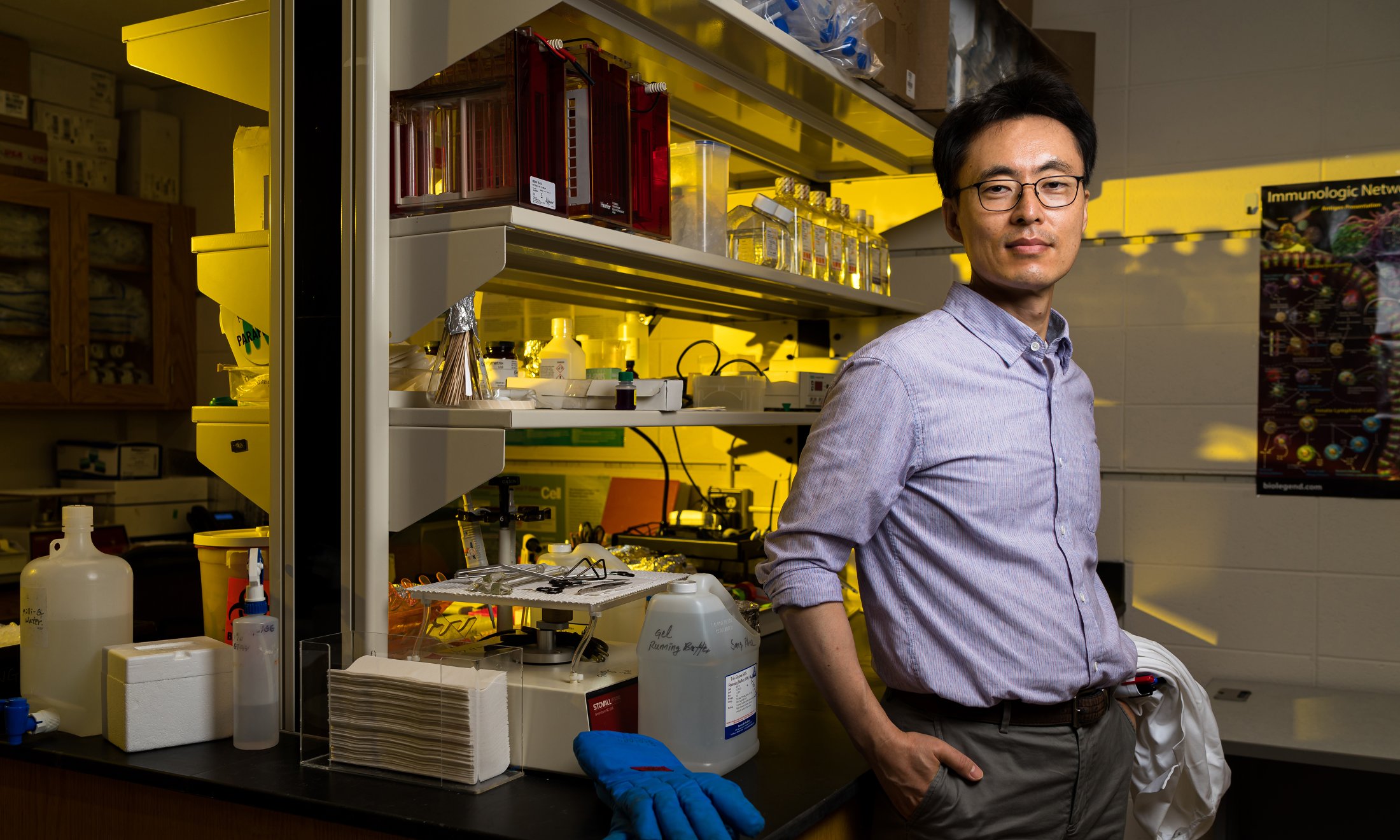Gut Feeling
Biology professor finds unexpected links between gut bacteria and brain health

Most of us might not like to think too hard about the inner workings of our digestive systems. But in recent years, scientists studying the alimentary canal have been making fascinating discoveries that suggest our stomachs might be doing a lot more for us than just digesting our dinner.
One of the most fertile areas of study for those scientists has been a colony of bacteria living in our intestines. We’ve known for decades that our intestines are populated by a large collection of microbial organisms mainly bacteria that help with digestion and can boost our immune systems. But in the last ten years or so, researchers like Dr. Sang Rhee, an assistant professor in the Department of Biological Sciences at Oakland University, have begun to develop a much more nuanced understanding of what else those bacteria can do — or not do — to our bodies.
Rhee’s specialty is mucosal immunology, which is the study of immune responses in our mucus
 |
membranes, including the throat, lungs, and, of course, intestines. In the past, his research has focused on cancer and inflammatory diseases affecting the digestive system, which he says are serious health threats in the United States.
“A study last year found that, in developed countries, 2-3 out of 100 adults will experience an inflammatory bowel disease sometime in their life,” Rhee explains. “And since colon cancer is the third most prevalent form of cancer in the U.S., these are very serious health concerns.”
In the past few years, however, Dr. Rhee’s research has expanded, sparked in part by research showing a surprising link between gut bacteria and brain health.
“We’ve known for a long time that people suffering from inflammatory bowel diseases often experience problems with memory and language use. It’s sometimes called ‘brain fog,’” Rhee says. “Several studies, including ours, have shown there may be a link between those diseases and degenerative neurological conditions like Parkinson’s and Alzheimer’s.”
In fact, one of his recent studies used functional magnetic resonance imaging (fMRI) to confirm that chronic colitis — an inflammation of the large intestine — can initiate Parkinson’s and Alzheimer's disease symptoms.
For now, Dr. Rhee’s studies are focused primarily on gaining a better understanding of the biological processes by which gut bacteria can impact brain health. But, with promising results coming so quickly, it’s easy to imagine they may lead to some exciting new medical treatments in years to come.


 November 20, 2019
November 20, 2019 By Adam DePollo
By Adam DePollo

